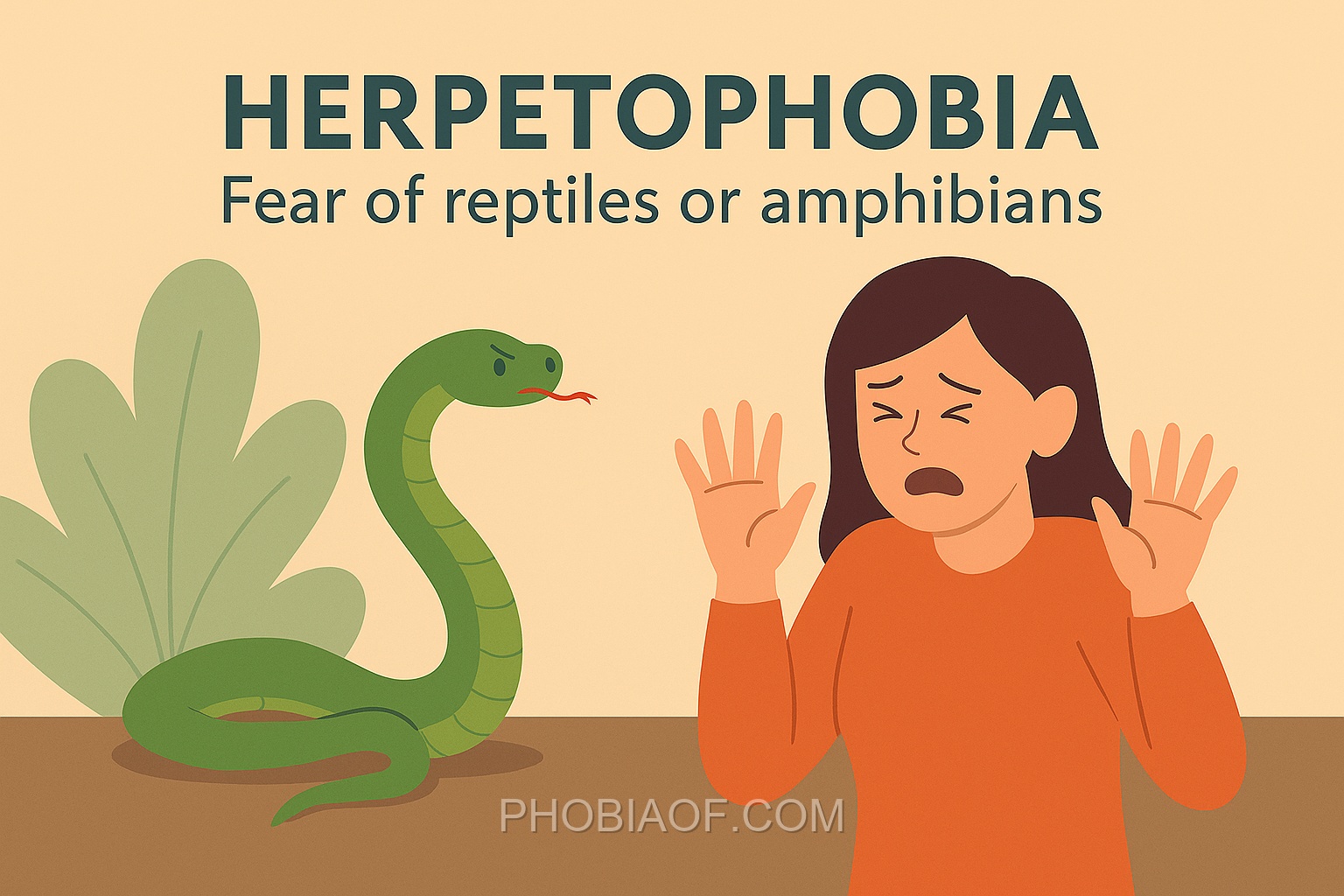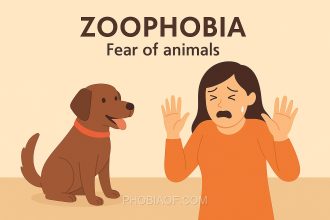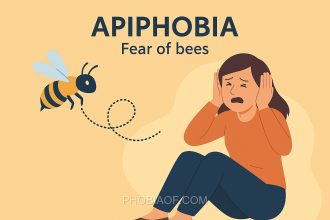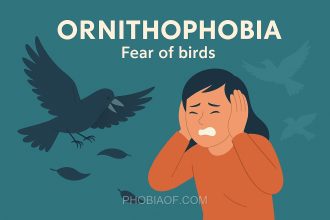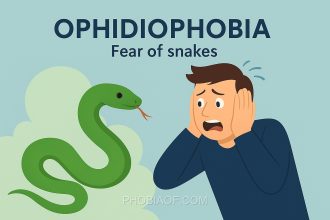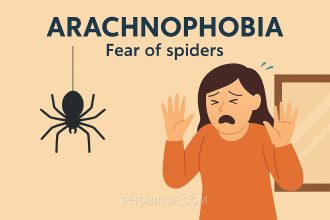Have you ever felt an overwhelming sense of dread at the sight of a snake, lizard, or even a harmless little frog? If so, you might be experiencing Herpetophobia, the fear of reptiles and amphibians.
Herpetophobia is a type of specific phobia that affects many people worldwide. The term is derived from the Greek word “herpeton,” meaning creeping animal, and “phobos,” meaning fear. This fear can manifest in various ways, ranging from mild discomfort to severe anxiety and panic attacks when confronted with these creatures.
People with herpetophobia often experience a range of physical and emotional symptoms, such as rapid heartbeat, sweating, nausea, or a strong urge to flee the situation. This fear can significantly impact daily life, making activities like hiking, visiting a zoo, or even watching nature documentaries challenging.
Understanding herpetophobia is crucial for those who suffer from it and for those around them. By approaching this fear with compassion and knowledge, we can help individuals navigate and manage their fears more effectively.
Causes of Herpetophobia
Herpetophobia, the fear of reptiles or amphibians, can arise from various factors. Understanding the potential causes can help in addressing and managing this phobia more effectively. Below are some common reasons why someone might develop herpetophobia:
- Genetic Predisposition:
Research suggests that genetics may play a role in the development of specific phobias, including herpetophobia. If a family member has a phobia, there is a higher likelihood that others may also develop similar fears.
- Traumatic Experiences:
A past negative encounter with reptiles or amphibians can trigger a lasting fear. An incident where someone was startled or harmed by a reptile might cause herpetophobia.
- Learned Behavior:
Observing others, especially parents or peers, exhibit fear towards reptiles can lead to developing the same fear. This learned behavior often occurs during childhood.
- Psychological Factors:
Anxiety disorders can contribute to the development of phobias. Herpetophobia might be part of a broader pattern of anxiety where the fear of reptiles becomes a focal point.
- Environmental Factors:
Exposure to media that portrays reptiles as dangerous or threatening can influence perceptions, leading to fear. Cultural beliefs and myths surrounding reptiles can also shape one’s fear.
Interestingly, some theories suggest that humans may have an innate predisposition to fear certain animals, including reptiles, as a survival mechanism. While these theories are still being explored, they offer fascinating insights into the possible origins of herpetophobia.
Understanding these causes can be the first step towards addressing and overcoming the fear of reptiles and amphibians.
Symptoms of Herpetophobia
Herpetophobia is characterized by an intense fear or anxiety about reptiles and/or amphibians. For individuals with this phobia, the fear can be overwhelming and may manifest in both physical and emotional ways. Recognizing these symptoms can be the first step towards understanding and addressing this phobia.
Common Physical Symptoms:
- Panic attacks, which may include shortness of breath, chest pain, and a sense of impending doom.
- Excessive sweating, especially when confronted with reptiles or amphibians, or even at the thought of them.
- Rapid heartbeat or palpitations, often triggered by encounters with feared creatures.
- Shaking or trembling when faced with a phobic stimulus.
- Feeling dizzy or lightheaded, particularly in situations where escape from the trigger feels difficult.
Emotional and Behavioral Symptoms:
- Avoidance of places where reptiles or amphibians might be present, such as pet stores, zoos, or certain outdoor environments.
- Overwhelming dread or anxiety at the thought of encountering a reptile or amphibian.
- Difficulty concentrating or thinking about anything other than the phobic object when it is nearby.
- Feeling powerless or out of control when faced with the feared situation.
- Experiencing intrusive thoughts or images related to reptiles or amphibians, causing distress.
When herpetophobia is severe, these symptoms can significantly interfere with a person’s daily life, limiting their ability to engage in routine activities and causing distress in various settings.
Treatment for Fear of Reptiles or Amphibians
Herpetophobia, or the fear of reptiles and amphibians, can be a challenging phobia to manage. However, it’s important to know that with the right treatment and coping strategies, it can be effectively managed and even overcome over time. Below, we outline various treatment options and coping strategies available to help you on your journey to overcoming this fear.
Therapies
- Exposure Therapy: This is a gradual process of facing your fear, starting with less intimidating situations and slowly building up to more challenging ones. The goal is to desensitize your response to reptiles or amphibians by controlled exposure, thereby reducing fear over time.
- Cognitive-Behavioral Therapy (CBT): CBT is designed to help change the fearful thoughts and negative patterns associated with herpetophobia. By restructuring your thought patterns, CBT can assist in reducing anxiety and improving your overall response to reptiles and amphibians.
- Counseling: Working with a counselor can provide a safe space to explore your fears and develop personalized strategies to manage them. Counseling can be an effective way to gain insight into the root causes of your phobia and work through them with professional support.
Self-Help Coping Techniques
- Relaxation Exercises: Techniques such as deep breathing, progressive muscle relaxation, and guided imagery can help reduce anxiety and create a sense of calm when faced with fear.
- Meditation: Regular meditation practice can enhance mindfulness and help you stay grounded in the present moment, reducing the impact of fear when it arises.
- Support Groups: Connecting with others who have similar fears can provide encouragement and understanding. Sharing experiences and coping strategies can be an invaluable resource in overcoming your phobia.
Medication
In some severe cases, medication such as anti-anxiety drugs may be prescribed to help manage symptoms. However, it is generally recommended to focus on therapy and coping skills as the primary methods of treatment.
It’s essential to seek professional help if herpetophobia is interfering with your daily life. A mental health professional can guide you through the most suitable treatment options tailored to your needs. Remember, overcoming a phobia is a process, and taking the first step toward seeking help is a significant achievement in itself. You are not alone in this, and with the right support, you can conquer your fears.
Conclusion
Understanding herpetophobia, the fear of reptiles and amphibians, is an empowering first step toward managing and overcoming this common phobia. By recognizing the underlying causes and identifying the symptoms, individuals can gain a clearer perspective on their fears and take proactive steps toward addressing them.
It is important to remember that many people successfully overcome or manage their phobias with time and the right support. Engaging in therapeutic techniques, such as cognitive-behavioral therapy, or seeking professional guidance can be highly effective in diminishing the grip of fear. If you or someone you know is struggling with herpetophobia, consider reaching out to a healthcare provider or mental health professional for support and guidance.
Remember, you are not alone in this journey, and with courage and commitment, it is possible to lead a life less burdened by fear. Embrace the possibility of change, and take the first step toward a more confident and fearless future.
